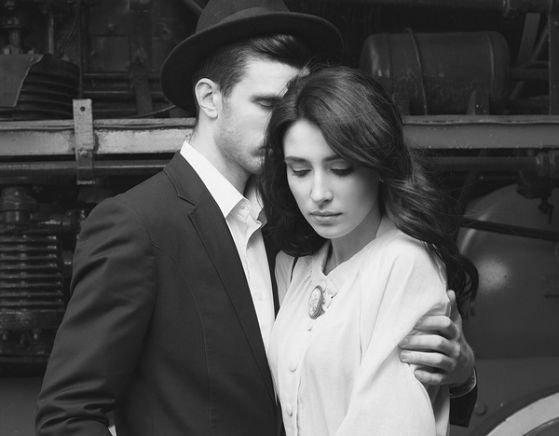Reaching Outside Relationships for Help with Them Is Not a Failure.

Do you consider it a failure when you have to go to the garage because you’re having car trouble?
Do you feel you have failed when you go to the dentist for your yearly check-up?
What about going to the gym? Do you feel like a failure when you sign up for that gym membership because you should have been able to get fit on your own, or shouldn’t be in this situation in the first place?
No? I didn’t think so.
So why is there so much taboo around looking for help in our relationships?
Why, when we are expected to be experts in so many areas of our lives, do we also expect ourselves to be experts in the one thing we get no educational training in: how to relate to others?
I told a family member my partner and I were thinking of getting couples’ counseling a while back, and while the response was supportive, loving and kind, she did say something that got me thinking.
She said, “Well, I don’t think anyone would feel particularly good about having to get counseling in their relationship. It’s not the sort of thing most people would see as the first port of call, is it? It’s a last resort.”
Why? Why is this what we believe societally?
Why is it a last resort, a failure, a mark of your lack of success in figuring things out on your own?
I have had so much therapy in my life through my process of healing CPTSD that therapy is like taking vitamins, going to the gym after a long sabbatical, reading a self-help book, or going to the dentist’s for a check-up because I felt a little niggle and didn’t want it to turn into something worse.
Personal and relationship therapy are not last resorts for me, because I don’t want to get to a place where I need a last resort.
These things may take effort, they may be uncomfortable at first for some people, but for me at least, when it comes to therapy, I know it will make me feel better than the alternative and so I do it. I know I can only find more awareness, understanding, and relief in a therapy room.
And while I’ve generally found myself in a place now where I finally have the tools to manage my mental, emotional and spiritual health by myself, that is only thanks to the therapy and counseling I have had in the past and what I learned there.
In a relationship, with another human being, suddenly I am in new territory with new tools to learn. I only have the power to control how I feel, respond, behave and think — and let’s be real, it’s not that easy — so if my partner is not on the same page as me or I am not on the same page as him, we miss each other and we miscommunicate.
Whether you access relationship counseling or not, your relationship will still be in the state it was when you first started discussing it. It doesn’t suddenly prove itself to be so much worse when you pick up the phone and make the appointment. You don’t show the world you couldn’t do it alone, or that your relationship is on its last legs.
Your relationship was struggling before the counseling, it’s just now you’ve made the decision to be proactive, band together, be a team, and find a solution. Just that choice in itself is a huge show of strength, love, devotion and trust.
I will go here with you despite it being scary and uncomfortable, because the health of our relationship is more important than my fear of feeling like a failure because we couldn’t do this alone.
A counselor or therapist has trained for years to be able to find solutions to the problems you are facing, and be a mediator and safe space for you to untangle the spaghetti junction of emotions, thoughts and expectations your relationship contains.
We don’t learn how to relate romantically. The lessons we grew up with in the media were questionable at best.
When you put two or more people together, both with their own life experiences, their own learned behaviors around relationships, sex and communication, and expect those two people to relate perfectly, and not only that but grow into new people together — the way you do in long-term relationships — and have those new people continue to relate perfectly, you create an unreasonable standard that sets people up to fail.
And you leave them feeling ashamed when they fail, even though they were bound to all along?
Relationship counseling should not be seen as the place you go when things are falling apart, it should be seen as the place you go to connect more deeply, understand yourself more thoroughly, and learn about your relationship. Like a school, or a gym or a dentist’s check-up.
How can I do better?
What do we need to work on?
How can we do this?
What will work for us?
It takes strength and trust to ask for help, and in asking for help your situation is no worse off all of a sudden. You simply have more tools to move out of it into a better place. I reject the idea that couples’ therapy is a last resort.
I would love to see sex and relationship therapy become like an MOT, where every few years, when you notice stumbling blocks that keep coming up, you go and get support and learn new tools to deal with them. Maybe if we did this, our divorce rates would be lower. In fact, I am sure they would be.
***

Esther De La Ford, through her private coaching practice and writing , works with women who want to reclaim their sexual power and reconnect with their bodies after sexual trauma. She uses a wide range of modalities including Emotional Freedom Technique, Clinical Hypnotherapy and Neuro-Linguistic Programming. She uses these tools, combined with her personal experience in trauma recovery, extensive experience in the adult entertainment industry as a lap-dancer and cam-girl, and research into all aspects of sexual healing, to help women find their unique path to healing and self-love. Esther’s work on well-being, sexuality and equality can be seen in places such as LoveHoney.com, BBC The Social, Huffington Post, Elephant Journal among others. To find out more about her work, go to her website, or contact her via Facebook.

